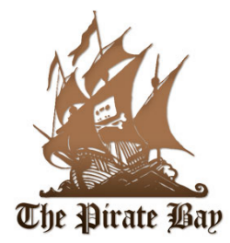Every day, millions of people around the globe use file-sharing networks. Much of that sharing involves the unauthorized downloading and/or distribution of copyright material.
In response, some companies have decided to monetize the activity by tracking alleged infringers back to their Internet service providers and by a variety of methods, getting them to pay a fine.
Commonly known as copyright trolling, this business model has been deployed in the United States, Canada, Europe, and elsewhere. To date, Sweden has escaped its clutches, despite being home to The Pirate Bay and a large number of file-sharers. That is now about to change.
In a new announcement, an organization calling itself Spridningskollen (Distribution Check) says it is about to launch a new initiative to punish those who file-share. The aim: to save the industry and educate the masses.
Distribution Check says that since the start of the year, German anti-piracy outfit Excipio has been monitoring the activities of Swedish file-sharers. That data will be used to track alleged file-sharers back to their ISPs.
“One can compare it to a speed camera. In the same way that a speed camera only records those who drive too fast, only those Internet users who share copyrighted material without permission are logged,” says spokesman Gordon Odenbark.
Initially, the group says it will target between 500 and 1,000 file-sharers and each will be asked to settle for around $233 (2,000 kronor).
“At this moment, we have said that we are only asking for [$233] per film, but that amount will be increased. I can almost guarantee that we will raise the damages in the fall,” OdenBark says.
These “cheap now, expensive later” claims are classic copyright troll tactics which are designed to encourage prompt payments from alleged file-sharers. But of course, some will refuse to pay, and for those individuals the threat of legal action via local firm Gothia Law are already being dangled.
“The amount [being demanded] is lower than the Swedish courts have sentenced file-sharers to pay historically, so you can consider it as a kind of settlement,” the company says on its website. “If you pay the sum, rights holders will stop their demands and both parties can avoid a costly and time-consuming trial.”
In common with similar schemes in operation in the UK, Distribution Check are trying to promote their project as an educational exercise. They say that in the first instance there will be a YouTube piracy awareness campaign. That will be followed by the settlement demands.
“Sure, it may seem hard to tackle individual file-sharers in this way, but to get a behavioral change, it’s probably necessary. A similar initiative has been operated in Germany and Finland, and it has been proven to work,” the company says.
“Ultimately, it is about the film and television industry’s survival. Illegal file sharing of copyrighted material costs the cultural sector several million in lost revenues annually. With Distribution Check, we want to ensure that television and movie companies get paid for their work, so that they can continue to run their business.”
Users concerned about the titles involved in this dragnet should look to content offered by Scanbox Entertainment, Noble Entertainment, Atlantic and Crystalis Entertainment, who are all Distribution Check partners.
More often than not, copyright trolls have more bark than bite, so their threats should be taken seriously but with a decent pinch of salt. In the meantime, customers of ISP Bahnhof can probably sleep more soundly than most. The ISP certainly won’t be handing over identities to trolls without a fight.







